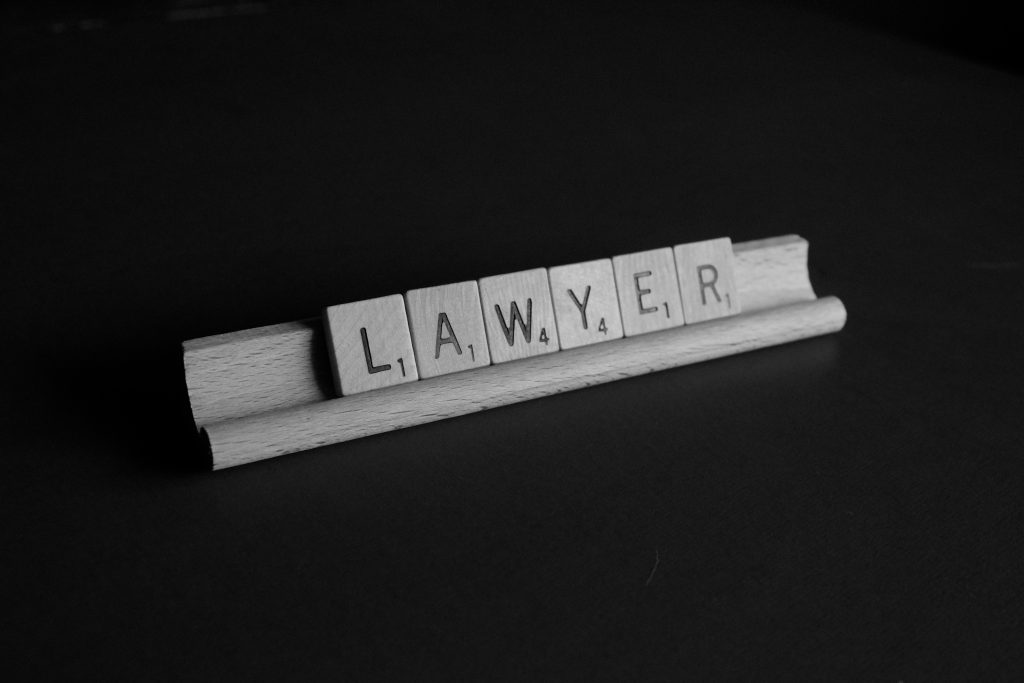Crafting compelling content for a criminal defense attorney’s website blog in the context of Criminal Defense Cottonwood Heights Utah requires a deep understanding of the target audience: individuals facing criminal charges in Utah. By conducting research on their needs and concerns, you can create informative posts that explain complex legal concepts in a clear and accessible manner. Engaging case studies and real-life scenarios should showcase your expertise and experience, instilling confidence and setting your firm apart. By addressing common legal concerns directly, providing reassurance and guidance, your content can create emotional connections with potential clients. Optimizing your content for search engines through keyword research and incorporating keywords naturally is crucial. Lastly, every blog post should include a clear call-to-action, urging potential clients to seek prompt assistance.
Understanding Criminal Defense
Criminal defense is a vital aspect of the legal system, ensuring that individuals accused of criminal charges are provided with proper representation. A criminal defense attorney plays a crucial role in protecting the rights of the accused and navigating the complexities of the criminal justice system. By understanding the various types of criminal charges and the potential consequences of convictions, individuals can make informed decisions about their defense strategy.
The Role of a Criminal Defense Attorney
A criminal defense attorney is an advocate for individuals charged with criminal offenses. They provide legal representation and guide their clients through the intricacies of the criminal justice system. Their role involves protecting their clients’ rights, investigating the case, gathering evidence, interviewing witnesses, and developing a strong defense strategy. A skilled criminal defense attorney strives to achieve the best possible outcome for their clients, whether through negotiation, plea bargains, or litigation.
Types of Criminal Charges
Criminal charges can vary widely, encompassing a range of illegal activities. Some common types of criminal charges include assault, robbery, drug possession, DUI, and white-collar crimes such as embezzlement and fraud. Each type of charge carries its own set of legal consequences and potential penalties. It is crucial for individuals facing criminal charges to understand the nature of the accusations against them to effectively build a defense.
Consequences of Criminal Convictions
Criminal convictions can have severe consequences, impacting various aspects of a person’s life. These consequences may include incarceration, significant fines, probation, community service, loss of employment opportunities, and damage to personal and professional reputation. Additionally, individuals with criminal records may face difficulties securing housing, loans, and educational opportunities. Understanding the potential consequences of criminal convictions highlights the importance of obtaining a strong defense to mitigate or avoid these outcomes.
Finding the Right Criminal Defense Attorney
The significance of hiring a competent criminal defense attorney cannot be overstated. The knowledge and expertise of a defense attorney play a pivotal role in safeguarding an individual’s rights and ensuring the best possible outcome for their case. When seeking a defense attorney, several qualities should be considered to ensure effective representation.
Importance of Hiring a Defense Attorney
Hiring a defense attorney is crucial for several reasons. Firstly, criminal law is complex, and navigating the intricacies of the legal system requires specialized knowledge and experience. An experienced defense attorney has extensive familiarity with criminal law and procedures, enabling them to devise effective defense strategies. Secondly, a defense attorney acts as a strong advocate, protecting the rights of the accused and advocating for fair treatment. Finally, a defense attorney brings objectivity to the case, providing objective advice and guidance throughout the legal process.
Qualities to Look for in a Defense Attorney
When searching for a defense attorney, there are several qualities to prioritize. Firstly, experience is essential. Look for an attorney who has a successful track record in handling cases similar to yours. Experience equips attorneys with the necessary skills to develop effective defense strategies and negotiate with prosecutors. Additionally, effective communication skills are vital. A defense attorney should be an excellent communicator, capable of articulating legal concepts clearly, and relaying information to clients in a comprehensible manner. Availability is another crucial aspect to consider. Ensure that the attorney you select can provide prompt attention and is accessible when needed.
Researching Defense Attorneys in Cottonwood Heights
Researching defense attorneys in Cottonwood Heights can help individuals find the right legal representation for their case. Utilize online resources such as legal directories, websites, and client reviews to gather information about prospective attorneys. Pay attention to factors such as experience, areas of practice, success rates, and client testimonials. Additionally, consider seeking referrals from trusted sources such as friends, family, or other legal professionals. By conducting thorough research, individuals can make an informed decision and select a defense attorney who is well-suited to their specific needs.
Building a Strong Defense Strategy
Developing a strong defense strategy is crucial when faced with criminal charges. By thoroughly investigating the case, gathering relevant evidence, and interviewing witnesses, an effective defense can be constructed to challenge the prosecution’s case against the accused.
Investigating the Case
A comprehensive investigation is essential to building an effective defense strategy. This involves gathering all available information pertaining to the case, including police reports, witness statements, and any other relevant documentation. The defense attorney will analyze the evidence presented by the prosecution, looking for inconsistencies, errors, or opportunities for reasonable doubt. Through meticulous investigation, the defense attorney can identify weaknesses in the prosecution’s case and develop a strategy to exploit them.
Gathering Evidence
The collection of compelling evidence is a critical aspect of building a strong defense. The defense attorney will assess the available evidence and work to obtain additional evidence that supports the accused’s innocence or challenges the prosecution’s case. This may involve gathering surveillance footage, expert testimonies, medical records, or any other evidence that can help establish a strong defense. By presenting credible evidence, the defense can cast doubt on the prosecution’s case and improve the chances of a favorable outcome.

This image is property of images.unsplash.com.
Interviewing Witnesses
Witness testimony can play a pivotal role in a criminal defense case. The defense attorney will conduct thorough interviews with potential witnesses to uncover information that can benefit the accused’s defense. Witness statements are evaluated for consistency and credibility, and the defense attorney may challenge the prosecution’s witnesses during cross-examination. By effectively utilizing witness testimony, the defense attorney can strengthen the case and provide an alternative narrative that supports the innocence of the accused.
Navigating the Criminal Justice System
Navigating the criminal justice system can be intimidating and overwhelming, especially for individuals who are unfamiliar with its procedures and protocols. Understanding the arrest process, the court system in Utah, and the potential for plea bargains and negotiations can help individuals better grasp the process and make informed decisions regarding their defense.
Understanding the Arrest Process
The arrest process typically involves the apprehension of an individual based on evidence provided to law enforcement officers. Once an arrest has been made, the accused is taken into custody, and their rights are read to them, including the right to legal representation. It is at this stage that individuals should seek the assistance of a criminal defense attorney to ensure their rights are protected and to begin building their defense strategy.
The Court System in Utah
Utah’s court system consists of various levels, each with its own jurisdiction and responsibility. At the trial court level, misdemeanor and felony cases are typically heard in the District Courts. For more serious offenses, such as capital offenses, the case may be elevated to the Utah Supreme Court. It is crucial for individuals to understand the hierarchy of the court system in order to determine the appropriate forum for their case to be heard.
Plea Bargains and Negotiations
Plea bargains and negotiations can play a significant role in criminal defense cases. A plea bargain involves an agreement between the prosecution and the defense, in which the accused may plead guilty to a lesser charge or accept a reduced sentence in exchange for avoiding a trial. Negotiations can also revolve around securing diversion programs or alternative sentencing options. Skillful negotiation by an experienced defense attorney can result in favorable outcomes for the accused, reducing potential penalties and avoiding the uncertainty of a trial.
Potential Defenses in Criminal Cases
Various defenses can be utilized in criminal cases to challenge the prosecution’s case against the accused. Some common defenses include the presumption of innocence, alibi defense, self-defense, mistaken identity, and the insanity defense. Understanding these potential defenses can help individuals and their defense attorneys determine the most appropriate strategy for their case.
Presumption of Innocence
The presumption of innocence is a fundamental principle in criminal cases. It places the burden of proof on the prosecution to demonstrate the guilt of the accused beyond a reasonable doubt. A defense attorney can emphasize this principle during trial and challenge the prosecution’s evidence and witness testimony. By asserting the presumption of innocence, the defense can undermine the prosecution’s case and improve the chances of a favorable outcome.
Alibi Defense
An alibi defense involves establishing that the accused was not present at the location where the alleged crime occurred during the time it was committed. This defense relies on presenting evidence such as witness statements, surveillance footage, or documentation that confirms the accused’s whereabouts at the time of the crime. By proving that the accused could not have been at the scene, the defense can raise doubts about their involvement in the crime.
Self-Defense
Self-defense is a defense strategy utilized when the accused claims to have acted in response to a perceived threat to their safety or the safety of others. The defense must demonstrate that the accused’s actions were reasonable and proportionate to the threat faced. This defense may involve presenting witness testimonies, expert analysis, or any other evidence that supports the accused’s belief that their actions were necessary for self-preservation.
Mistaken Identity
Mistaken identity is a defense used when the accused asserts that they were incorrectly identified as the perpetrator of the crime. This defense usually relies on presenting alibi evidence, witness statements, or forensic evidence that demonstrates the accused’s innocence. By casting doubt on the accuracy of the identification, the defense can undermine the prosecution’s case and raise reasonable doubt about the accused’s guilt.

This image is property of images.unsplash.com.
Insanity Defense
The insanity defense is employed when the accused claims that, at the time of the offense, they were unable to understand the nature and consequences of their actions or distinguish right from wrong due to a mental illness or defect. This defense typically involves presenting expert testimonies and medical records that establish the accused’s mental state at the time of the crime. The burden of proof for this defense rests on the defense, requiring them to demonstrate that the accused meets the legal criteria for insanity.
Juvenile Criminal Defense
Juvenile criminal cases differ significantly from adult criminal cases, as they involve individuals under the age of 18. Understanding the distinctions between juvenile and adult criminal cases, the juvenile court process, and the importance of protecting the future of juvenile offenders can help individuals facing juvenile charges navigate the legal system effectively.
Differences between Juvenile and Adult Criminal Cases
Juvenile criminal cases differ from adult cases in several important ways. Firstly, the primary focus of the juvenile justice system is rehabilitation rather than punishment. The goal is to guide young offenders towards reformation and reintegration into society. Additionally, juvenile cases are typically handled in a separate court system, known as the juvenile court, which operates with specialized rules, procedures, and personnel. The privacy and confidentiality of juvenile offenders are prioritized, and records may be sealed or expunged to protect their future opportunities.
Juvenile Court Process
The process of a juvenile case involves several stages, including arrest, intake, detention, adjudication, and disposition. After an arrest, the juvenile is typically taken to a juvenile detention facility where an intake officer assesses the case. The adjudication stage involves the court determining whether the juvenile is responsible for the alleged offense, while the disposition stage focuses on determining the appropriate consequences and interventions. Throughout this process, it is essential for juveniles and their families to have legal representation to ensure their rights are protected and the best possible outcome is achieved.
Protecting the Future of Juvenile Offenders
One crucial aspect of juvenile criminal defense is protecting the future prospects of young offenders. A skilled defense attorney can work to have a juvenile’s records sealed or expunged to prevent long-term negative consequences. By sealing or expunging records, the mistakes of youth are not permanently held against individuals as they pursue education, employment, or other opportunities. Working to protect the future of juvenile offenders is essential in promoting rehabilitation and reducing recidivism rates.
Drug Crime Defense
Drug crimes encompass various offenses related to the possession, manufacturing, distribution, or trafficking of illegal substances. When facing drug charges, it is imperative to understand the potential consequences and seek effective defense strategies to mitigate or avoid convictions.
Drug Possession Charges
Drug possession charges can range from misdemeanor offenses to more severe felony charges, depending on the type and quantity of the drugs involved. A skilled defense attorney can challenge the legality of the search and seizure, question the chain of custody of the evidence, challenge the accuracy of lab results, or explore alternative explanations for the presence of drugs. By developing a strong defense strategy, individuals facing drug possession charges can improve their chances of obtaining a favorable outcome.
Drug Trafficking Charges
Drug trafficking charges typically involve the transportation, distribution, or sale of illegal substances. These charges carry severe penalties, including lengthy prison sentences and substantial fines. Building an effective defense strategy in drug trafficking cases may involve challenging the credibility or reliability of the evidence, questioning the legality of the search and seizure, or raising doubts about the accused’s knowledge or involvement in the alleged drug trafficking activities. With a strong defense, individuals can protect their rights and seek the best possible outcome in drug trafficking cases.
Defenses for Drug Crimes
Various defense strategies can be employed in drug crime cases, depending on the circumstances and evidence involved. Some potential defenses include challenging the legality of the search and seizure, asserting entrapment, questioning the credibility of witnesses, challenging the accuracy of lab results, or exploring the possibility of a valid medical prescription. Skilled defense attorneys can analyze the specific details of the case and develop a tailored defense strategy that maximizes the chances of a favorable outcome.
DUI Defense
Driving under the influence (DUI) charges are serious offenses that can carry significant legal and personal consequences. Understanding the potential consequences of a DUI conviction, challenging DUI evidence, and exploring alternative sentencing options are crucial when facing DUI charges.
Consequences of a DUI Conviction
DUI convictions can result in severe penalties, including fines, license suspension, mandatory alcohol education programs, probation, and even incarceration. Additionally, individuals convicted of DUI may experience increased insurance premiums and potentially face limitations on their employment prospects. It is essential to take DUI charges seriously and seek effective defense strategies to mitigate or avoid these harsh consequences.

This image is property of images.unsplash.com.
Challenging DUI Evidence
Challenging DUI evidence is a crucial aspect of developing a strong defense strategy. DUI cases often involve breathalyzer or blood test results, field sobriety test performance, and officer observations. Defense attorneys can challenge the accuracy and reliability of these tests, question the adherence to proper testing procedures, or challenge the officers’ observations. By challenging the DUI evidence, individuals can potentially cast doubt on the prosecution’s case and seek a favorable outcome.
Alternative Sentencing Options
In some cases, alternative sentencing options may be available as an alternative to traditional penalties for DUI convictions. These options typically involve participating in treatment or rehabilitation programs, attending alcohol education classes, or performing community service. By proactively exploring alternative sentencing options alongside a skilled defense attorney, individuals facing DUI charges may be able to secure more lenient consequences that focus on rehabilitation rather than punishment.
Violent Crime Defense
Violent crime charges, such as assault, robbery, or murder, carry severe legal and personal consequences. Building a strong defense in violent crime cases involves thorough investigation, research, and the development of a comprehensive legal strategy tailored to the specific circumstances of the case.
Assault Charges
Assault charges involve intentionally causing physical harm or the apprehension of immediate physical harm to another person. A successful defense strategy may involve establishing self-defense, demonstrating lack of intent, challenging the credibility or reliability of witness testimonies, or presenting evidence that contradicts the prosecution’s case. By building a strong defense, individuals facing assault charges can seek to protect their rights and obtain a favorable outcome.
Robbery Charges
Robbery charges involve the act of taking another person’s property through force or the threat of force. Effective defense strategies in robbery cases may involve challenging the identification of the accused, questioning the credibility of witnesses, or exploring alternative explanations for the presence of the accused at the scene of the alleged crime. By presenting a robust defense, individuals facing robbery charges can significantly improve their chances of avoiding conviction or securing more favorable outcomes.
Murder Charges
Murder charges are among the most serious criminal offenses, carrying severe penalties, including life imprisonment or even the death penalty. Building a strong defense in murder cases requires extensive investigation, thorough analysis of evidence, and strategic legal arguments. Defense strategies may involve challenging the prosecution’s evidence, presenting alternative theories or suspects, exploring forensic evidence, or demonstrating a lack of intent or premeditation. Seeking the assistance of an experienced defense attorney is vital in murder cases to protect the accused’s rights and provide comprehensive legal representation.
Building a Strong Defense in Violent Crime Cases
Building a robust defense in violent crime cases requires thorough preparation, extensive legal knowledge, and a strategic approach. Defense attorneys will analyze the available evidence, interview witnesses, consult with experts, and develop a legal strategy tailored to the specific circumstances of the case. By working closely with a skilled defense attorney, individuals facing violent crime charges can present a strong defense, challenge the prosecution’s case, and seek the best possible outcome.
White Collar Crime Defense
White-collar crimes typically involve non-violent offenses committed for financial gain or fraudulent purposes. Understanding the nature of white-collar crimes, such as embezzlement and fraud, and employing effective defense strategies is crucial in protecting individuals facing these charges.
Understanding White Collar Crimes
White collar crimes are typically characterized by deceit, manipulation, or violation of trust for financial gain. Examples of white-collar crimes include embezzlement, fraud, forgery, insider trading, or identity theft. These crimes are often complex and require extensive analysis of financial documents, expert testimony, and the examination of intricate transactions. Defense attorneys specializing in white-collar crimes are well-versed in the intricacies of these offenses and can provide knowledgeable and effective representation.
Embezzlement Charges
Embezzlement charges involve the misappropriation or theft of funds entrusted to an individual in a position of trust, such as an employee or financial professional. Defense strategies in embezzlement cases may involve challenging the evidence gathered by the prosecution, asserting a lack of intent, or questioning the financial discrepancies alleged by the prosecution. By developing a robust defense strategy, individuals facing embezzlement charges can protect their rights and seek a favorable outcome.
Fraud Charges
Fraud charges encompass a wide range of criminal offenses involving deceit or misrepresentation for financial gain. Examples include insurance fraud, securities fraud, credit card fraud, or identity theft. Defense strategies in fraud cases often involve challenging the prosecution’s evidence, proving lack of intent or knowledge, or presenting evidence that contradicts the allegations. By employing effective defense strategies, individuals facing fraud charges can seek to protect their rights and obtain a favorable resolution.
Defending Against White Collar Crimes
Defending against white-collar crimes requires a comprehensive understanding of financial systems, intricate transactions, and the laws governing these offenses. Defense attorneys specializing in white-collar crimes possess this expertise and can employ effective strategies to challenge the prosecution’s case. By conducting thorough investigations, analyzing financial records, consulting with expert witnesses, and presenting strong legal arguments, defense attorneys can provide individuals facing white-collar crime charges with the best possible chance of a favorable outcome.
Experienced Criminal Defense in Cottonwood Heights
When facing criminal charges in Cottonwood Heights, it is crucial to seek the assistance of an experienced criminal defense attorney familiar with the local court system. Understanding the local court system, reviewing success stories, and considering client testimonials can help individuals find the right criminal defense attorney for their case.
Understanding the Local Court System
Navigating the local court system in Cottonwood Heights requires a deep understanding of the jurisdiction, procedures, and key personnel involved. An experienced criminal defense attorney familiar with the local court system can leverage their knowledge to effectively guide individuals through the legal process. By selecting a defense attorney who is well-versed in the specificities of the local court system, individuals can benefit from their expertise and increase the chances of a successful defense.
Success Stories
Reviewing success stories from previous cases can provide valuable insights into a defense attorney’s abilities and track record. Successfully resolved cases in various practice areas, such as assault, drug crimes, or DUI, demonstrate the attorney’s proficiency in handling different types of criminal charges. It is important to consider an attorney’s success in similar cases to gauge their level of expertise and determine if they are suitable for one’s own legal needs.
Client Testimonials
Client testimonials offer firsthand accounts of individuals who have worked with a particular defense attorney. These testimonials can provide valuable information about the attorney’s communication skills, availability, and overall client satisfaction. Reading client testimonials can help individuals gain confidence in their potential attorney and evaluate whether they are the right fit for their legal representation needs.
By taking the time to understand the local court system, reviewing success stories, and considering client testimonials, individuals can make an informed decision when selecting a criminal defense attorney in Cottonwood Heights. The right attorney can provide expert legal representation, guide clients through the complexities of the legal process, and pursue the best possible outcome for their case.
In conclusion, understanding criminal defense is essential for individuals facing criminal charges. By comprehending the role of a criminal defense attorney, the types of criminal charges, and the potential consequences of convictions, individuals can make informed decisions about their defense strategy. Finding the right criminal defense attorney is crucial, as their knowledge, experience, and qualities play a pivotal role in safeguarding the rights of the accused. Building a strong defense strategy involves investigating the case, gathering evidence, and interviewing witnesses. Navigating the criminal justice system requires an understanding of the arrest process, the court system in Utah, and the potential for plea bargains and negotiations. Potential defenses in criminal cases include the presumption of innocence, alibi defense, self-defense, mistaken identity, and the insanity defense. Juvenile criminal defense differs from adult cases, requiring an understanding of the unique juvenile court process and protecting the future of juvenile offenders. Drug crime defense involves tackling drug possession and trafficking charges, utilizing effective defense strategies. DUI defense necessitates understanding the consequences of a DUI conviction, challenging DUI evidence, and exploring alternative sentencing options. Violent crime defense requires building a strong defense in cases involving assault, robbery, or murder. White-collar crime defense demands an understanding of white-collar crimes, such as embezzlement and fraud, to employ effective defense strategies. Finally, when seeking criminal defense in Cottonwood Heights, understanding the local court system, reviewing success stories, and considering client testimonials can aid in finding experienced legal representation.




